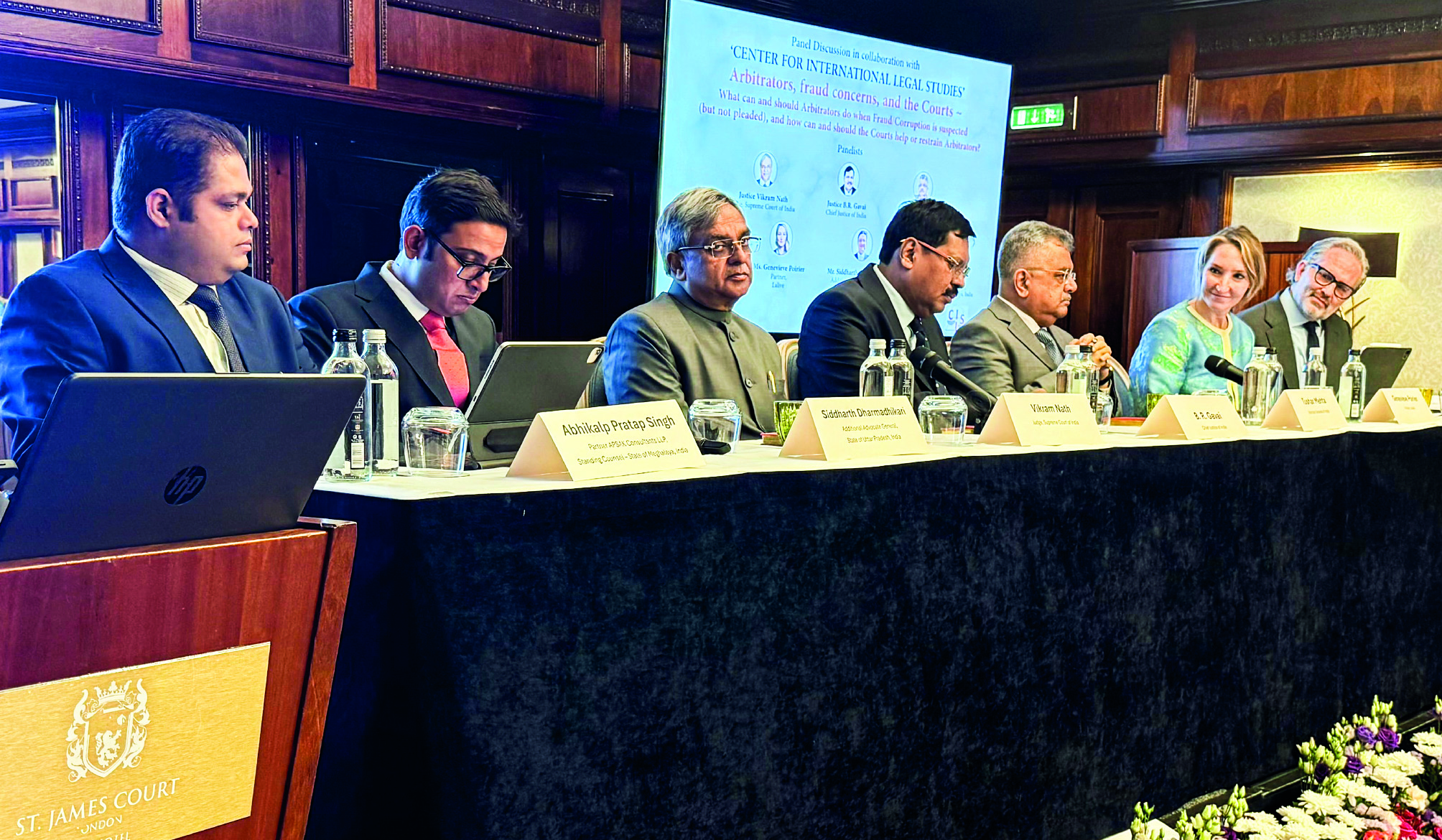India aspires to be arbitration hub through progressive framework: CJI

New Delhi: Chief Justice of India B R Gavai on Thursday said India has continuously aspired to become a hub of international arbitration by building a progressive legislative framework, a pro-enforcement judiciary and robust institutional support.
In his keynote address on “Arbitrating Indo-UK Commercial Disputes” as part of the London International Disputes Week, the CJI said India and the United Kingdom shared a rich history, bound by a common legal heritage rooted in the principles of common law.
He referred to the July 2018 memorandum of understanding signed between India and the United Kingdom for cooperation in the area of law and justice and said it has enhanced the engagement between the two countries and paved the way for greater collaboration and exchange of expertise across areas including the rule of law, dispute resolution, training and legal services resolution.
“Speaking as the Chief Justice of India, I state that India has continuously aspired to become a hub of international arbitration by building a progressive legislative framework, a pro-enforcement judiciary and robust institutional support,” he said.
CJI Gavai highlighted that this bond between India and the UK was further strengthened by the signing of a Free Trade deal between the two nations this year -- a step that would significantly enhance bilateral trade and economic cooperation.
“The United Kingdom, with its established reputation as a hub for commercial arbitration, and India, with its expanding economy and legal reforms, stand poised to deepen cooperation in this critical domain. By promoting dialogue, encouraging joint institutional initiatives, and building confidence among businesses and practitioners, we can create a seamless dispute resolution environment that benefits both jurisdictions,” he said.
He added as any form of commercial activity, disputes were an inevitable part of the process but what truly mattered was not the existence of these disputes, but the capacity and commitment to efficiently resolve them.
“The manner in which we address and settle conflicts is what defines the strength and resilience of our commercial relationships,” he said.
He said such a framework ensured that disagreements did not undermine trust or hinder progress and instead turned into an opportunity for constructive engagement, promoting long-term cooperation and stability in business interactions.
“One such mechanism is international commercial arbitration. In light of the expanding trade and investment flows between India and the UK, the need for an effective, reliable, cost efficient, and timely dispute resolution process has never been more pressing,” the CJI said.



